Nicola Sturgeon fumes over claim Scotland is ‘catching up’
Support for independence is rapidly growing as polls consistently put a Yes vote ahead. Scotland’s First Minister – Ms Sturgeon – is hoping that this momentum can help deliver a mandate for IndyRef2. The SNP is looking likely to win the Scottish elections comfortably this May – the party’s victory in 2011 was crucial in securing the 2014 vote – so Ms Sturgeon is hoping another win will force Prime Minister Boris Johnson’s hand.
After the 2019 general election, when the SNP dominated in Scotland, Ms Sturgeon told Mr Johnson, “I have a mandate”.
However, professor of public law and human rights at the University of Durham, Aileen McHarg, told the Guardian last month that while a mandate is “politically important”, it is “legally irrelevant.”
She added: “If a court decides that the Scottish government does have power to hold a referendum it will obviously create significant political momentum. But they would still need the Government’s consent ultimately to leave the Union.”
The Scottish government is trying to gain the powers to hold a second referendum – and the case is before the Court of Sessions.
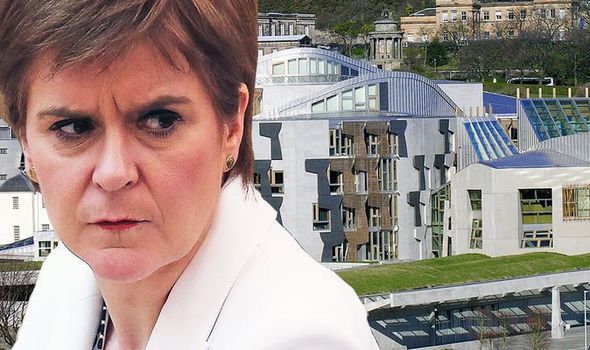
Nicola Sturgeon news: Sturgeon is trying to secure IndyRef2 (Image: getty)
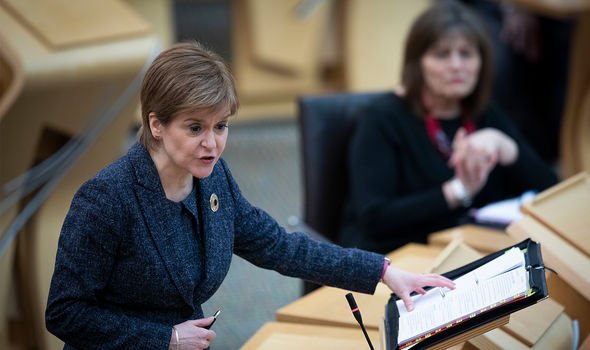
Nicola Sturgeon news: Sturgeon’s argument is ‘legally irrelevant’ (Image: getty)
As things stand, the power to call such a vote lies with Westminster.
Professor McHarg told Express.co.uk last year that Ms Sturgeon will have a more seamless route to independence if she can secure the right to call a second referendum.
If the SNP were to unilaterally declare a vote, there is a risk of boycott, she said.
Professor McHarg said: “Would there be a unionist boycott? [in the event of a unilaterally declared vote] I think this is quite likely.
READ MORE: Nicola Sturgeon warned Scotland’s EU entry ‘could get messy’
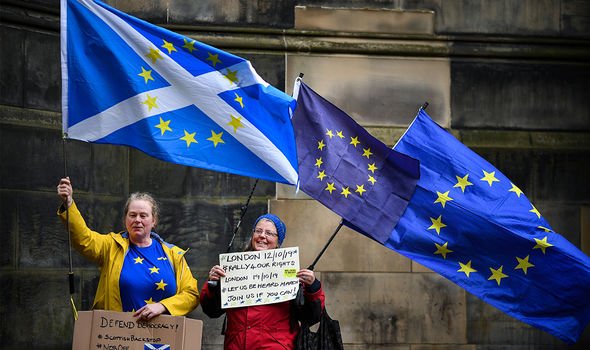
Nicola Sturgeon news: Support for independence has grown (Image: getty)
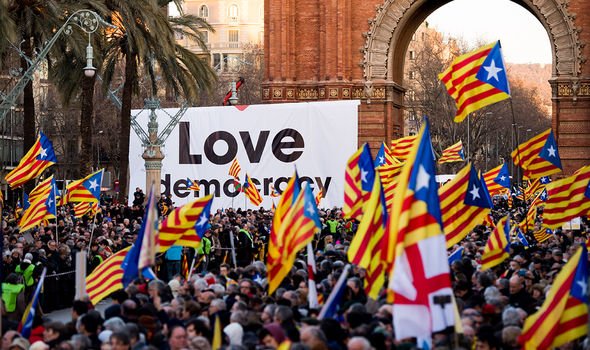
Nicola Sturgeon news: Catalonia’s vote was boycotted (Image: getty)
“There are a couple of precedents that could support that – in 1973 there was a border poll in Northern Ireland on reunification.
“That was boycotted by unionists in Northern Ireland, and there is also the Catalonian referendum in 2017 which was boycotted by pro-Spanish voters.
“How significant that becomes is a question of how high support for independence is. If it is floating at just around 50 percent then a unionist boycott is a significant undermining of its legitimacy.
“If however, support for independence is as high as 75 percent, then a boycott would be much less significant.”
DON’T MISS
Sturgeon warned independent Scotland would be ‘left with pennies’ [INSIGHT]
Andrew Neil warned Sturgeon’s independence vow could cause ‘recession’ [ANALYSIS]
Sturgeon’s independence ‘in tatters’ after £12bn ‘black hole’ [INSIGHT]
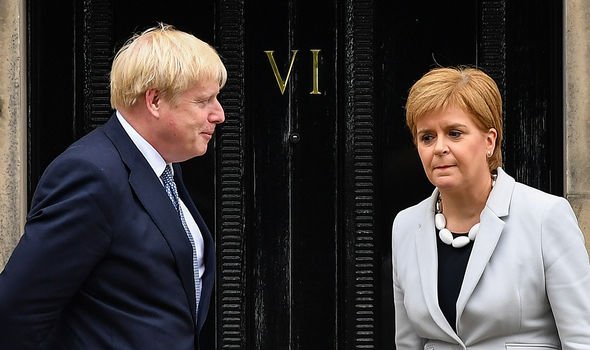
Nicola Sturgeon news: Sturgeon and Johnson have clashed over IndyRef2 (Image: getty)
In October 2017, Catalonia’s regional government held an unconstitutional referendum without permission from Madrid.
Organisers said 90 percent of voters backed a split. But turnout was only 43 percent amid a boycott by unionists.
Catalonia declared independence as a result of the vote, but not a single state recognised this as legitimate.
Professor McHarg also warned last month that if the SNP lose their case in the Court of Sessions, independence would be a “non-starter”.
She added: “You can’t force local authorities to cooperate, there would be no proper control of spending or the campaign, and a potential boycott by voters.”
Ms Sturgeon wants to take Scotland into the EU, and Professor McHarg told this website last year that there are “no legal barriers” for this.
She added: “Any barriers for Scotland in joining the EU are political rather than legal, because any candidate to join the EU has to abide by the terms set.
“It would be fairly easy to meet those terms because Scottish law is currently fully compliant with EU law.
“As time goes on there are likely to become greater divergences, but that would simply mean at the time Scotland wanted to join the EU we’d have to change stuff then.”
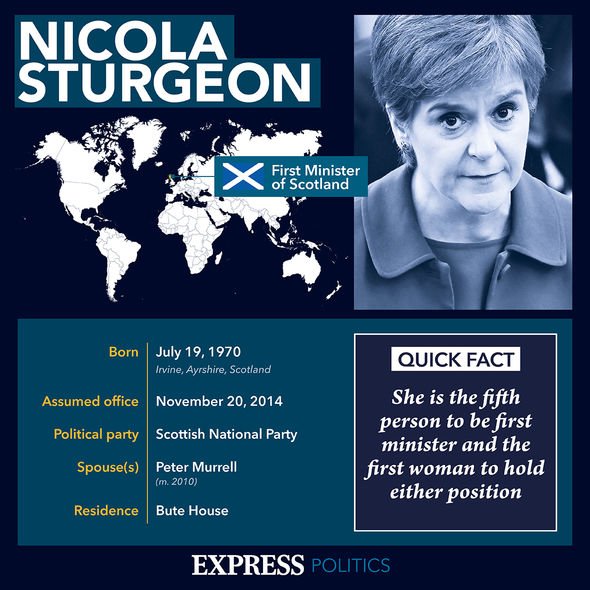
Nicola Sturgeon profile (Image: DX)
Belgian MEP Philippe Lamberts, President of the European Greens in Brussels, told Express.co.uk in December that Ms Sturgeon has the makings of a future European Commission President.
He said: “Nicola Sturgeon comes across as a genuine person, politically astute and someone whose word can be trusted, whereas Boris Johnson comes across very quickly as someone you can’t trust.
“I can imagine Nicola Sturgeon being president of the European Commission, she seems to be much closer to the centre of gravity of European politics than Boris Johnson is.”







